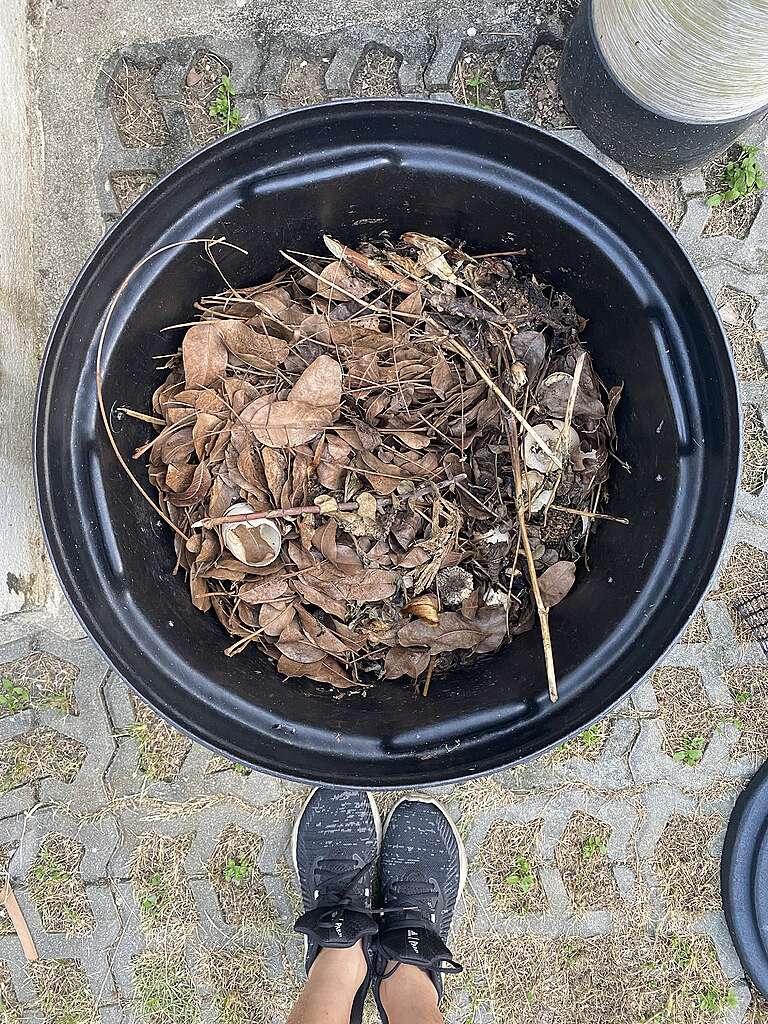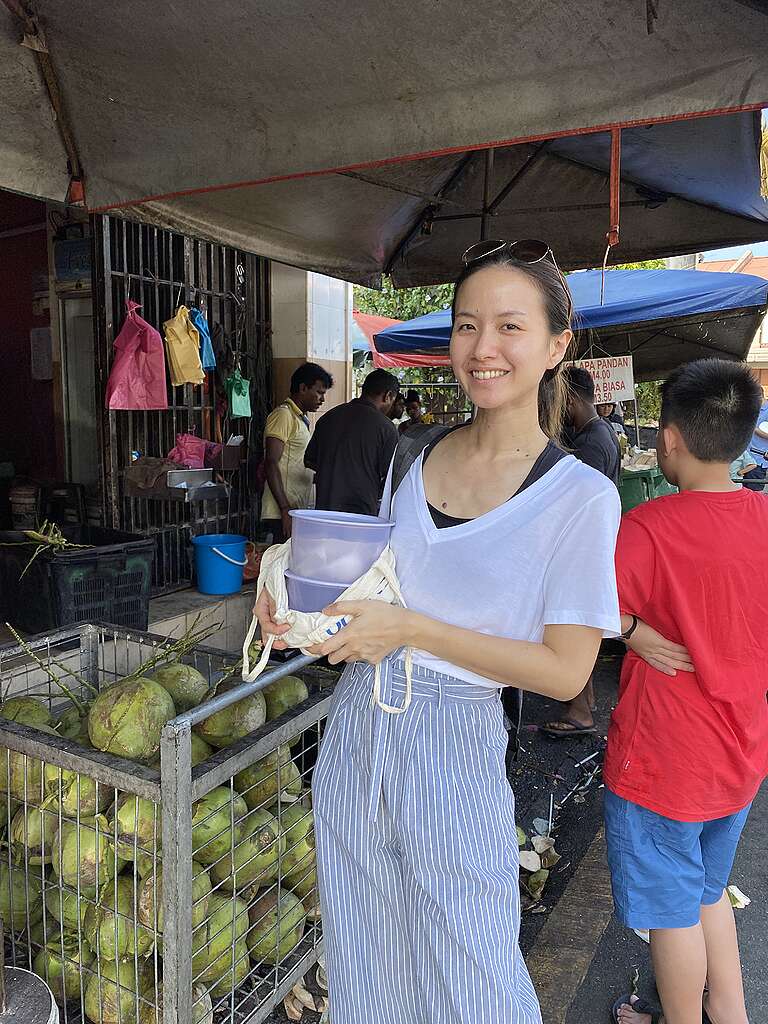Imagine a world where every action we take, every purchase we make, is purposeful and guided by a commitment to reduce, reuse, and recycle. Picture a lifestyle where waste is not just minimized but entirely eliminated, leaving behind a cleaner, healthier, and more sustainable planet for future generations. This is the vision of the zero-waste movement- a global initiative that is gaining momentum as individuals, communities, and businesses across the globe take conscious steps towards a waste-free existence.
Meet Melissa Tan, a fashion model and lifestyle personality from Malaysia. Most people remember her from a widely popular modelling reality show. After a glamorous fashion career that saw her in many magazine spreads and billboards, these days Melissa lends her face and voice to advocate for environmental and social causes. She is an eco-conscious fashionista who blogs and does speaking engagements to talk about the need for climate action and living sustainably. Melissa is also one of Greenpeace's Plastic-Free Future Ambassadors advocating for an end to single-use plastic and supporting a strong and ambitious Global Plastic Treaty.

We recently caught up with the busy Melissa, to ask her about her zero-waste beginnings and her insights into living sustainably.
1. How did you become interested in zero-waste living? What motivated you to start your zero-waste journey?
I grew up caring deeply for animals and our environment- an environmentally-conscious child furiously recycling everything in sight. But when I heard about the zero-waste lifestyle and the idea of how we can refuse the creation of trash in the first place, preventing harm before it's created, that was a light bulb moment for me. It was so obvious, yet I could not see it until someone showed me. And it was like taking power back, being able to take tangible action that translates into change in the culture as we influence others. I started to see my direct link to the world around me and how I could change that story.
I started changing my daily habits, learning more, going down different rabbit holes and interconnected areas, re-examining and breaking habits in the cycle of excessive, irresponsible consumption. In the end, it was about developing the mindset and perspective from zero-waste living, to be able to see yourself as a change agent.
I shared about it on social media, and it grew from there- connecting with people and throwing my voice and efforts behind the cause, collaborating with other passionate people. I saw how we can influence others to see and claim their roles in change as well so that together we can change the culture. People are taking power back, with change rising from the grassroots.
2. What are some of the biggest challenges you've faced while transitioning to a zero-waste lifestyle? How do you handle situations where zero-waste options are limited or unavailable?
For me, there is the option to abstain completely from consuming something if a zero-waste option is unavailable. Oftentimes, it would benefit me in the end either by giving me enough pause to avoid the consumption of something I did not truly need or want, or by being resourceful in finding a low-waste alternative. For example, most packaged food is processed food which I avoid so I end up eating more nourishing, whole foods. I avoid a lot of clutter from entering my living space because I either find I can go without something and prevent impulsive purchases, or find an alternative to accessing the use of an item like borrowing, renting, freecycling or just plain making do with what I have.

3. How does one get started? Any tips for people who'd like to transition to a zero-waste lifestyle?
Start with Bringing Your Own (BYO) bottle, container and bag and focus on building this simple habit first. Don't rush into buying 'zero-waste tools' or stuff that has a 'zero waste aesthetic'. More often than not, you already have many options for containers, bottles, and bags at home and more to help you avoid waste even if they don't fit the aesthetic. The goal after all is to create less waste, and cut down on environmental impact. For example, I have refilled the same 'formerly disposable' plastic detergent bottle more than 20 times and didn't need to buy a dedicated bottle or a glass one.
4. What are some of the creative ways you've found to repurpose items that might otherwise become waste?
I don't focus much on repurposing as I am also an aspiring minimalist. I try not to keep things around and repurpose them if they do not actually serve a meaningful secondary purpose. For example, a lot of upcycling activities tend to turn one form of waste into another piece of 'clutter' that eventually gets thrown away or renders what could have been recyclable waste into something potentially unrecyclable because it has been contaminated by the repurposing activity.
5. Do you compost? How do you minimise food waste?
I use a few methods depending on my living conditions as I move between two spaces. I have an old converted garbage can that we turned into a compost bin by drilling holes in. I bury my food waste in a big plant pot in my condo. I keep the food waste in a container in the freezer to bring to community compost sites. Sometimes, I chuck them into a site with degenerated soil and gradually improve the land there. It's about finding what works for you.

6. Can you share some of your favourite resources (books, websites, documentaries) for learning more about zero-waste living?
My favourites are Kathryn Kellog of @going.zero.waste who was an early influence for me, and Rob Greenfield of @robjgreenfield who pushes the boundaries of how he challenges himself to detach from our modern system and be self-sustainable.
7. Sustainability is now becoming a marketing tactic. Any recommendations for businesses or industries looking to reduce their waste production?
It's about reducing rather than switching. There is a trend in the market of replacing one form of disposable with another that is viewed as more 'sustainable' because it is a biodegradable material. The associated costs with that switch tend to be higher, but it also doesn't change the disposable culture and can have unwanted side effects like more deforestation and monoculture agricultural activity to meet the demand of 'compostable' disposables.
Removing disposables as an option and using incentives instead would help save costs for the business and develop the desired action from their customer base, while contributing to cultural change.

And we couldn't agree more. Right now, big changes must be made to turn the tide against plastic pollution. Single-use plastic is flooding the planet with new plastics being produced daily by big brands and corporations. If the plastic industry has its way, plastic production could double within the next 10-15 years, and triple by 2050. Remember, plastic pollutes at every stage of its life cycle- oil, coal, and gas are the building blocks of plastic. Imagine the huge amount of waste that will be generated, not to mention more carbon emissions to add to our climate woes every time new and more plastic is made!
Clearly, we need a solution that matches the scale of the problem. Thankfully, we now have a means to turn off the plastics tap for good- a Global Plastic Treaty is now being discussed! And we want this treaty to be a strong and ambitious one to cut plastic production by at least 75% to ensure that we are staying below 1.5* C for our climate and to protect our health, our rights, our communities, and our planet.
The Global Plastics Treaty is a once-in-a-generation opportunity to solve the plastics crisis. For the sake of our collective future, we cannot waste this moment. Join the movement to #EndTheAgeOfPlastic.
Therese Salvador is Greenpeace Southeast Asia's Regional Communications Coordinator.






